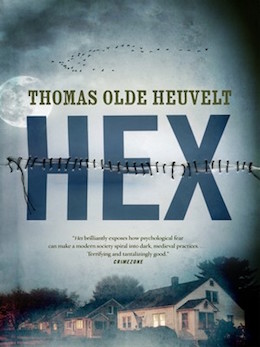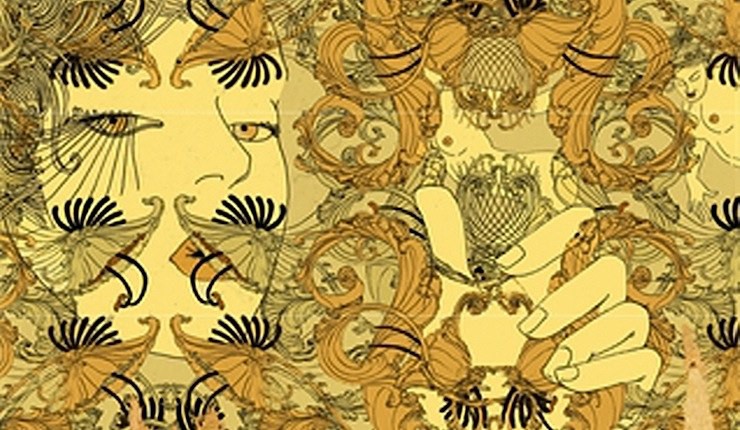I discovered early on that in the Netherlands, we have no tradition of the fantastic in literature. All the cool books in the bookstore, the ones I wanted to get my hands on when I was a kid, were translations. I didn’t care; I devoured them anyway. But then in high school, we were forced to read the Dutch classics, and then I discovered that not only did we lack a tradition of the fantastic in literature, we also lacked a tradition of books where stuff actually happens.
One of Holland’s most celebrated classical novels is De Avonden (The Evenings) by Gerard Reve. It’s a book about nothing. It celebrates nothingness. And it’s not a fun book about nothingness. It’s a serious book about nothingness. One can appreciate its literary merits when you’re in your thirties or forties, but force a fifteen-year-old kid to read that book, and it’ll probably be one of the last books they’ll ever read.
Of course I’m exaggerating (a little). Of course there are exceptions (Harry Mulisch). But overall, the traditional Dutch novel is about the seriousness of life, about normal people and normal situations, and should have serious intentions. One should not look for exuberant and hilarious inventiveness—not linguistically and not in plot—and definitely not for adventure.
So when I started studying American literature at university, I was shocked. In the best possible way. Here we had a canon of literature that also dealt with serious subjects, but in terms of wild, absurd jokes, far-fetched intrigues, and fantastic situations! We read Nathaniel Hawthorne. We read Edgar Allan Poe. We read Mark Twain and Ralph Ellison. I still remember how passionately my tutor, Professor Hans Bak, spoke about all of them. These were stories and books in which—OMG—stuff happened! And some had ghosts!
One of the first stories we talked about in class was the feminist gothic/horror story “The Yellow Wallpaper” by Charlotte Perkins Gilman, from 1892. It’s still one of the best short stories ever written, and the certainly the one that influenced me most as a writer. It also has the best ending to a story. Ever.
It’s about an oppressed woman with a “nervous condition” and “hysterical tendencies” who is kept secure in this colonial mansion attic room by her controlling husband. She thinks the place is haunted and goes slowly insane, as she discovers a woman creeping behind the patterns of the wallpaper and is intent on setting her free. The descent into madness of the protagonist is perfectly well executed, especially as it is described from her own perspective. At the end of the story, she has torn down most of the wallpaper and roped herself to the bed, and the husband comes in. The closing lines are hauntingly creepy: “Now why should that man have fainted? But he did, and right across my path by the wall, so that I had to creep over him every time!”
After being mauled to death with the dry canon of the classical Dutch novel, this felt like a literary orgasm—even more so because of its ambiguity. My tutor told me that an interpretation with ghosts in it was as fine as an interpretation about women’s oppression. They were both true. This is something I had never seen in the literature of my home country.
Maybe we should have a Seth Grahame-Smith cook up a Gerard Reve, The Evenings and Zombies. I bet high school kids here would love it. Or maybe we should just celebrate that things are changing. I get many emails from students who were allowed to read my novel HEX for their reading list. I always reply, recommending “The Yellow Wallpaper.” And, hey, to pick up The Evenings too. Once they’re forty, or something.
Top image from The Yellow Wallpaper and Selected Writings (Virago, 2009)
 Thomas Olde Heuvelt is a Hugo Award-winning novelist and short story author from The Netherlands. His horror novel HEX will be published this month by Tor in the United States and Canada, and by Hodder & Stoughton in the UK and Australia. It’s been sold to publishers in countries around the globe, including China, France, Brazil and Turkey. Warner Bros. is currently developing a TV series based on the book. Besides being a writer, Olde Heuvelt is an avid mountaineer. Find him on Twitter @Thomas_Novelist.
Thomas Olde Heuvelt is a Hugo Award-winning novelist and short story author from The Netherlands. His horror novel HEX will be published this month by Tor in the United States and Canada, and by Hodder & Stoughton in the UK and Australia. It’s been sold to publishers in countries around the globe, including China, France, Brazil and Turkey. Warner Bros. is currently developing a TV series based on the book. Besides being a writer, Olde Heuvelt is an avid mountaineer. Find him on Twitter @Thomas_Novelist.










